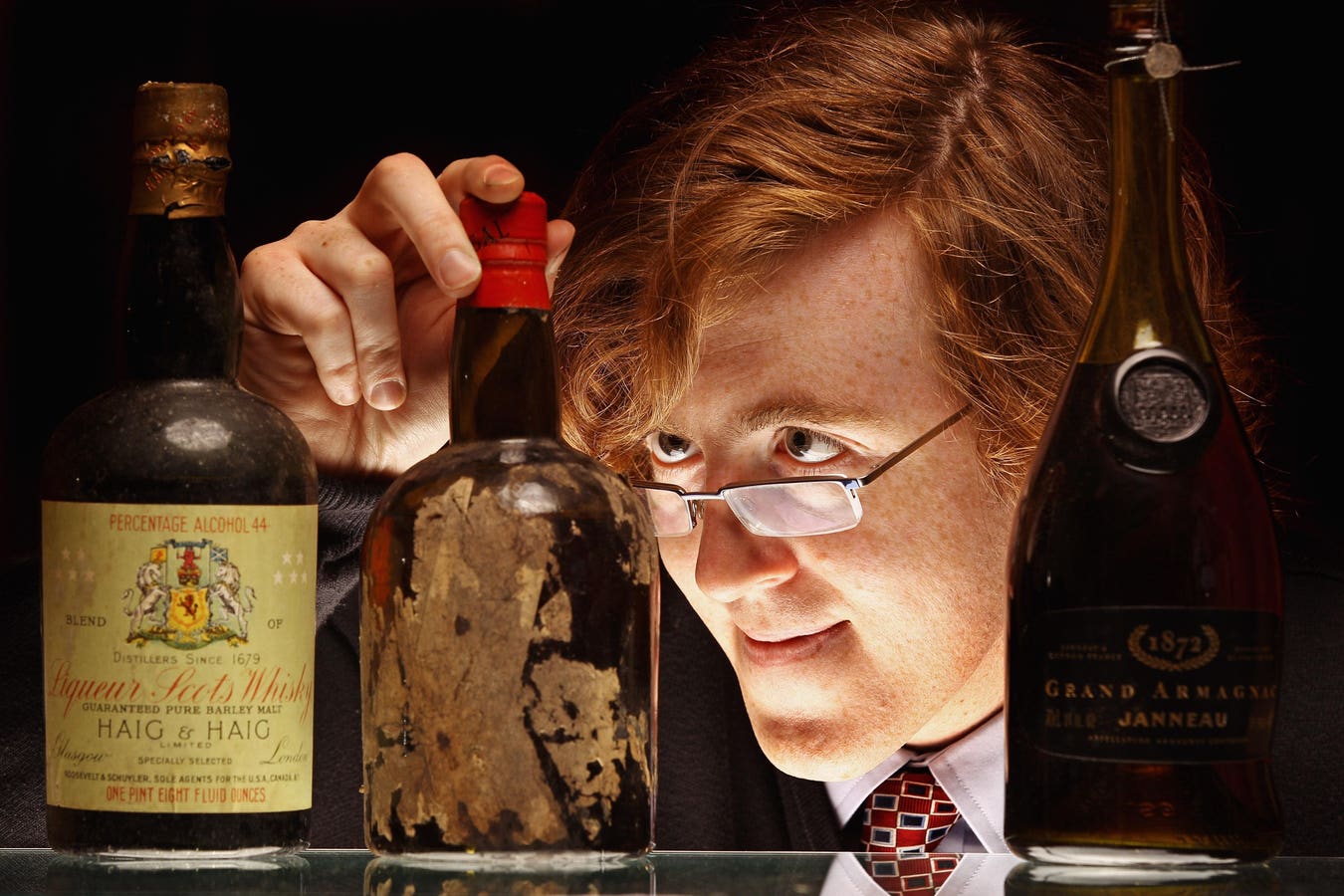- cross-posted to:
- whiskey@lemmy.world
- cross-posted to:
- whiskey@lemmy.world
Late last year, a hidden trove of whisky was discovered in a cellar room deep within a 13th century Scottish castle. The liquid was subsequently tested and determined to have been distilled back in 1833, making it the oldest known scotch in existence. Now two dozen bottles of it are going under the hammer in a November auction.



The longer a whisky is aged, typically it is more expensive. However, aging only happens inside the wooden barrel. The whisky develops more flavours due to interaction with the wooden cask. There is diminishing returns to ageing the whisky longer.
This isn’t what’s happened here. The whisky was stored in bottles. These bottles shouldn’t cause any ageing. However, these two ideas can be conflicted.
The value of this whisky is a taste of the past. A way to physically experience some history. People with an idea that things were better in the past may want to believe this was a better whisky.
I would guess this isn’t going to taste better. Improvements in manufacturing, quality control and knowledge of whisky probably make a better whisky today. Any high end whisky is going to be better. However, these same processes make low end whisky cheaper and probably worse.
If sealed properly the flavour of whiskey is extremely resilient so I think you are spot on about it being a way to experience whiskey history.
I would absolutely love to taste some of this stuff…the idea of tasting something from back then is very exciting.
I also expect you are correct in that wouldn’t taste as good as a modern whiskey.
If you really want to taste something historical, go to Egypt. Ancient Egyptian honey is routinely found in tombs and is still edible.
Do they have middle aged women standing outside the pyramids handing out lil bitty spoons of honey samples? (I always go “mmmm…wow…I’m DEFINITELY going to get some of these now! Can I have one more?”)
“Just go to Egypt, brah.”
So, lighter fluid, it tastes like lighter fluid.
I’m just going to chime in and say all alcohol tastes like shit and I think very little of anyone who thinks otherwise.
They’re fooling themselves and buying into marketing, more often than not.
If by marketing you mean the buzz I get from one drink, then yeah.
Different folks have different tastes. I basically like things that physically hurt my mouth: Captain crunch, salt and vinegar kettle chips, ghost peppers, warheads, Laphroaig neat, espresso.
Some folks would rather have chicken nuggets and chocolate milk and that is Ok.
I think you need to experience more of the world.
I think cilantro is AWFUL and tastes like stinkbugs smell, but I don’t think people who like it are “fooling themselves and buying into marketing.”
People are different and they like different things.
Alcohol is different than cilantro.
Try not to resort to analogies, because then we have to discuss the merits of the analogy instead of the situation at hand.
You can say the same thing about literal shit. Which is why we don’t use analogies.
I’m not sure it is, actually.
Cilantro is simply a case where we have isolated the genetic difference. Taste and smell are enormously complicated, and there is evidence that other differences in taste are based in genetics as well.
For example, some people really enjoy a bitter IPA, but I cannot stand them. There have been some studies that have shown a potential link between genetics and a rejection of the strong hoppy flavors found in those types of beer. Which explains why my brothers-in-law love them but I cannot get through a single one, while I really enjoy other beers.
This should not be surprising. Smell involves an enormous number of proteins our genes code for to recognize chemicals. Some people recognize ones that others will not.
Perhaps there is something in your genetics that makes alcohol more abhorrent than it does for others.
All that said, there is something to be said about “acquiring” a taste. Which is to say, learning to appreciate what is good about something. Learning to taste whiskey is initially about taking very small sips to learn what flavors to look for without being overpowered by the ethanol. You don’t really drink scotch unless you’re very familiar with it, but even then a good scotch is more about sipping and appreciating the flavors.
This doesn’t only apply to literal taste. Music appreciation is largely about acquiring taste by learning what is good about it. Genres you are unfamiliar with will often not sound good to you, and music you think is incredible and unimpeachable might be called garbage by someone who is unfamiliar with the genre. Most genres have things to listen for to enjoy them, and unless you learn to like them you won’t.
And that’s okay! Not everyone needs to like the same things. But what we need to recognize is that other people are not wrong for having different tastes. They’re just different. Whether that difference is based in experience or genetics or any other factor, it’s not bad.
I don’t want to agree with you, but I do. I feel the same about coffee.
You also don’t like to eat you vegetables, probably.
Wrong. Lol.
You probably believe the first thought that comes to mind regardless of what contradicts it.
Many highly marketed drinks are just slightly better low grade alcohol.
Many alcoholic drinks do have different characteristics and flavour profiles. You also don’t need to go super high end to experience them. If you wanted to learn more go to a tasting event. You don’t need to spend a lot to access go quality stuff. In fact the higher quality accessable stuff isn’t marketed very well.
High end alcohols won’t taste like the very sweet soft drinks. If you want or expect something like that your not going to get it.